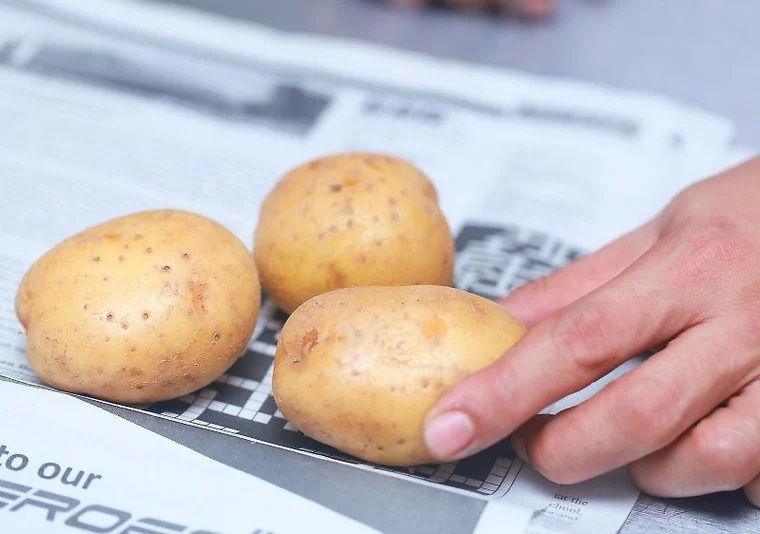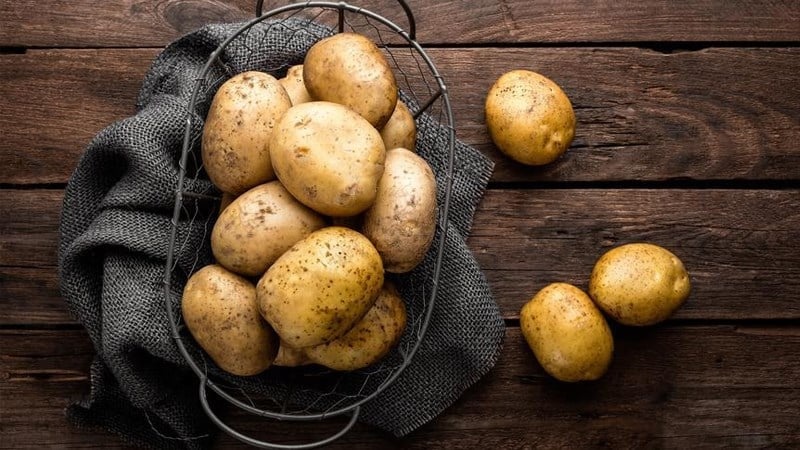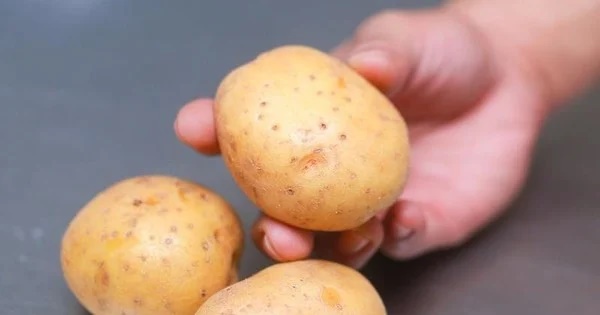Keep Potatoes Dry
To prolong the shelf life of potatoes, ensure they are thoroughly dry. There is no need to wash potatoes after purchasing them. If they are particularly dirty, use a dry cloth to gently wipe them clean. Moisture promotes sprouting and provides an ideal environment for bacteria and mold to thrive.
Store in a Well-Ventilated Area

Potatoes should be stored in a cool, dry, and well-ventilated area. Adequate airflow prevents moisture buildup, inhibiting sprouting and spoilage. Without proper ventilation, moisture from the potatoes will condense inside the storage container, fostering bacterial growth and accelerating decay or sprouting.
Opt for storing potatoes in a basket, paper bag, or mesh bag to ensure sufficient airflow around the potatoes.
Keep Them Cool and Away From Light
For optimal potato storage, maintain a temperature of 45-50°F (7-12.5°C). In a typical household setting, storing potatoes in a cool, dark place, such as a kitchen cabinet or basement, will suffice to prevent sprouting over an extended period.
Avoid Refrigeration

Refrigeration is not recommended for potatoes. At very low temperatures, the starch in potatoes converts to sugar, altering their flavor. If long-term storage is desired, cut the potatoes into suitable sizes, blanch them, and then freeze them.
Do Not Store Potatoes with Onions and Fruits

Keep potatoes separate from onions, apples, bananas, and other ethylene-producing fruits. Ethylene accelerates sprouting and softening in potatoes.
Regularly Inspect Your Potatoes
During storage, periodically check your potatoes for any signs of sprouting or rot. If you notice any spoiled potatoes, remove them promptly to prevent the spread of decay to the rest of your potato supply.
Signs That a Potato Needs to Be Discarded:
– Green Skin: Green-skinned potatoes indicate exposure to light. If the greening is minimal, you can cut away the affected areas before cooking.
– Rotten: Potatoes that have become soft and developed an unusual odor should be discarded immediately.
Source: Xe và thể thao
How to Keep Your Fruits Fresh for Longer
“Fruit is nature’s delicious treat, packed with essential vitamins and fiber for a healthy, beautiful you. But these sweet delights are notoriously fickle, quickly turning from ripe to rotten. Discover the secrets to keeping your fruit fresh and vibrant, just like that summer glow you’re after. Join us as we explore tried-and-true tips and tricks to prolong the life of your favorite fruits.”
How to Store 502 Glue to Prevent Drying?
Are you seeking effective methods to prevent your Super Glue from drying out? Well, look no further! We are here to offer you simple yet ingenious solutions to keep your Super Glue fresh and functional for longer. With our expert advice, you’ll never have to worry about dried-up glue again. So, get ready to unlock the secrets to maintaining your Super Glue’s longevity!






































